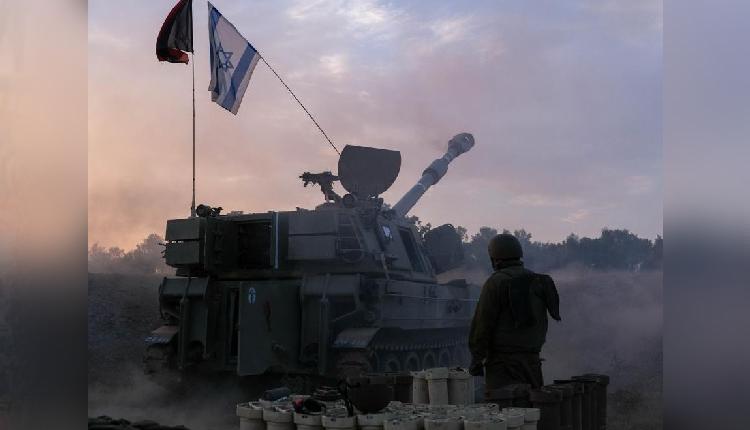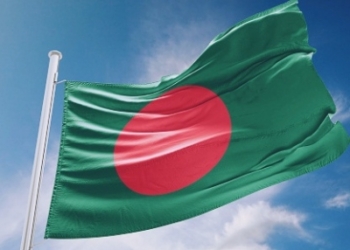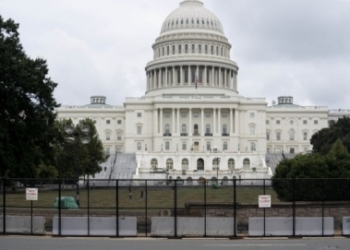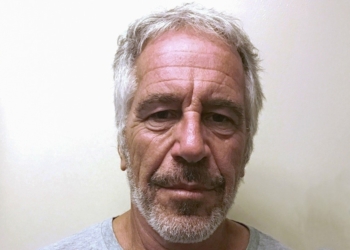New Delhi: The similarities between Israel’s invasion of Lebanon and its operations in Gaza go beyond just the choice of tactics. Then, as now, the invasion began after a shocking Palestinian attack. Then, as now, Israel’s hawkish leaders opted for a maximalist response.
Then, as now, much of the fighting took place in densely populated urban areas, with militants often interspersed among civilians. And then, as now, the Israel Defense Forces (IDF) used disproportionate force, Sarah E. Parkinson, Aronson Assistant Professor of Political Science and International Studies at Johns Hopkins University wrote in Foreign Affairs.
“This parallel is not heartening. If Lebanon is any guide, Israel’s war in Gaza will end poorly for both Palestinians and Israelis. Despite its military superiority, Israel never succeeded in eradicating the PLO.
“Instead, the IDF’s primary accomplishments were killing tens of thousands of civilians; fragmenting Palestinian groups into smaller cells that spent years conducting hit-and-run operations; inspiring the rise of a new Lebanese militant party, Hezbollah; and losing over 1,000 of its own citizens in an occupation that stretched until 2000,” Parkinson wrote.
It is a pattern that is already playing out again. Lebanon is referred to as “Israel’s Vietnam” for good reason, the article said.
“And when all is said and done, it is unlikely that Israel will knock out Hamas or Islamic Jihad. It may significantly weaken them, as the IDF did to the PLO and many guerrilla factions in 1982. But the groups will remake themselves, and other organizations will emerge to fill any void—just as Islamist groups did in the late 1980s. Instead, what Israeli decision-makers will discover is something they ought to have already understood and that regional experts have known for years: there is no military solution to the Israeli-Palestinian conflict.
“But the military and humanitarian lessons of Lebanon strongly suggest that the current catastrophic conditions in Gaza will grow only more acute and that there will be long-term, disastrous consequences for all parties,” Parkinson said.
Israel’s long-standing approach to urban warfare, its plans for occupation (Netanyahu has said that Israel will assume “overall security responsibility” for Gaza for an “indefinite period of time”, its alliances with nonstate militias, and its use of mass imprisonment all echo what happened in Lebanon. It is therefore hard to imagine the outcome will be substantively different, the article said.
Five weeks into the Israel-Hamas war, the US faces a brewing crisis of confidence among some of its closest partners in the Middle East, says Brian Katulis, Vice President of Policy of Middle East Institute.
Since the early stages of this conflict, the US has seen a divergence between its stated goal of supporting Israel’s effort to eliminate Hamas and the goal of an immediate ceasefire supported by some of its closest partners in the Middle East.
Without a different diplomatic and policy approach, the US risks becoming more isolated in the region, Katulis said.
At an extraordinary joint Islamic-Arab summit held in Riyadh, Saudi Arabia’s Foreign Minister, Prince Faisal bin Farhan, criticised “double standards” in the global response to the Gaza war and spotlighted allegations of Israeli violations of international law., he added.
Widespread protest marches have been held around the world calling for a ceasefire since the war in Gaza began. South Africans themselves have staged demonstrations almost weekly by the US Consulate in Johannesburg and Israeli embassies in Pretoria and Cape Town, New Arab reported.
The rising death toll in the besieged Palestinian territory and increasing unease in Washington have significantly strained the US’ posture amid mounting pressure domestically and abroad. There are concerns in the White House about the potential for further diplomatic backlash overseas in response to Israel’s military aggression, New Arab reported.
US allies in the Arab world have also clearly voiced anger at the humanitarian crisis in Gaza, rejecting Israel’s claims of self-defence. But Arab nations, notwithstanding their outcry over the war, don’t seem willing to make serious moves vis-a-vis Israel as they rejected a proposal to cut diplomatic relations with Tel Aviv during a recent Islamic-Arab summit in Riyadh.
Jordan is one key regional player whose diplomatic gestures could have an impact. With close to half of its population being of Palestinian descent, sharing a long border with the West Bank and Israel, and serving as the custodian of the Muslim holy places in Jerusalem, for the Hashemite Kingdom the Israeli onslaught on Gaza is a matter of national security, New Arab reported.
Former leader Ehud Barak fears Israel has only weeks left to eliminate Hamas, as public opinion — most significantly in the US — rapidly swings against its attacks on Gaza, Politico reported in a recent interview.
Barak, who led Israel between 1999 and 2001, observed the rhetoric of US officials had shifted in recent days with a mounting chorus of calls for a humanitarian pause in the fighting.
The sympathy generated toward Israel in the immediate wake of October 7, when Hamas launched the deadliest terrorist attacjk on Israel in the Jewish state’s 75-year history, was now diminishing, he worried, Politico reported.
Barak added it would take months or even a year to extirpate the Islamist militant group Hamas — the main war aim set by Israeli Prime Minister Netanyahu and his war cabinet — but noted Western support was weakening because of the civilian death toll in Gaza and fears of Israel’s campaign sparking a much broader and even more catastrophic war in the region.
(IANS)
















